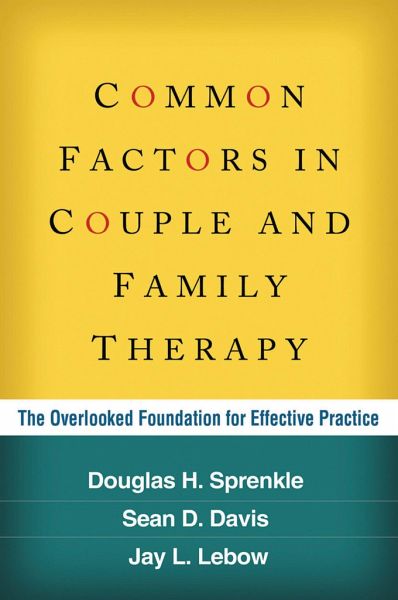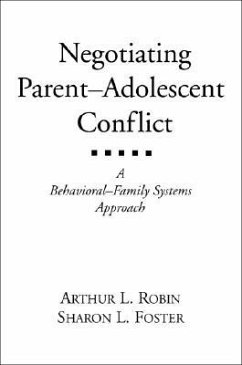
Common Factors in Couple and Family Therapy
The Overlooked Foundation for Effective Practice
Versandkostenfrei!
Versandfertig in über 4 Wochen
35,99 €
inkl. MwSt.
Weitere Ausgaben:

PAYBACK Punkte
18 °P sammeln!
Grounded in theory, research, and extensive clinical experience, this pragmatic book addresses critical questions of how change occurs in couple and family therapy and how to help clients achieve better results. The authors show that regardless of a clinician's orientation or favored techniques, there are particular therapist attributes, relationship variables, and other factors that make therapy--specifically, therapy with couples and families--effective. The book explains these common factors in depth and provides hands-on guidance for capitalizing on them in clinical practice and training. ...
Grounded in theory, research, and extensive clinical experience, this pragmatic book addresses critical questions of how change occurs in couple and family therapy and how to help clients achieve better results. The authors show that regardless of a clinician's orientation or favored techniques, there are particular therapist attributes, relationship variables, and other factors that make therapy--specifically, therapy with couples and families--effective. The book explains these common factors in depth and provides hands-on guidance for capitalizing on them in clinical practice and training. User-friendly features include numerous case examples and a reproducible common factors checklist.













